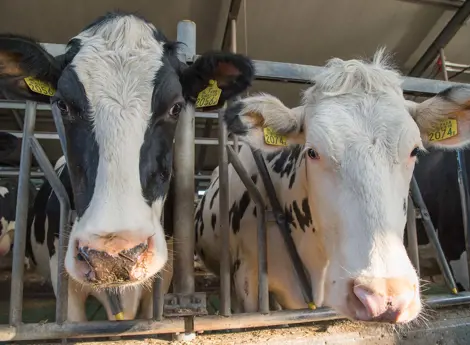The four phases of transition: How to achieve problem-free calving and a good start to lactation
As a dairy farmer, you know the importance of the transition between lactations. Each phase plays a key role, and each needs to be handled differently. With a successful four-phase approach, you and your herd will reap the benefits, from one lactation to the next, and the next, and the next…
1. The drying-off phase: The final weeks of lactation
The final weeks of one lactation are vital in creating a good basis for the next. The objective is to monitor the cow’s physical condition in order to make important decisions – such as when to start the dry period, whether to use antibiotics once it begins and whether to change cows’ rations during the second half of the lactation. A Body Condition Score (BCS) of 3.5 is optimal for drying off. It is also advisable to trim hooves preventively during this period.
2. The far-off phase: The first four weeks of the dry period
This stage gives udder tissue a chance to recover before the next lactation. It therefore needs to be managed well, which means deciding which animals to treat with antibiotics, using the right drying-off products and providing good hygiene and housing. In addition, it is essential to make sure your cows have plenty of dry matter intake (DMI) from forages.
3. The close-up phase: The last two weeks of the dry period
The role of the close-up phase is to prevent calving problems, produce a healthy calf and start the next lactation well. The right ration during this period can shorten labour and prevent transition-related health problems – for example, reducing the Dietary Cation Anion Difference (DCAD) cuts the risk of milk fever. Likewise, increased energy density in rations will avoid a negative energy balance (NEB) and also help prevent milk fever.
4. The early-fresh phase: The early weeks of the new lactation
The aim now is to cut out complications at the start of lactation. The DMI – kept as high as possible in phases 2 and 3 – should increase, reaching a maximum level early in this stage. Providing a well-balanced complete feed with roughage will ensure high milk and milk solids production.
By understanding its different phases, you can manage the transition more effectively, and improve not only your cows’ performance but also their health – a win-win.

